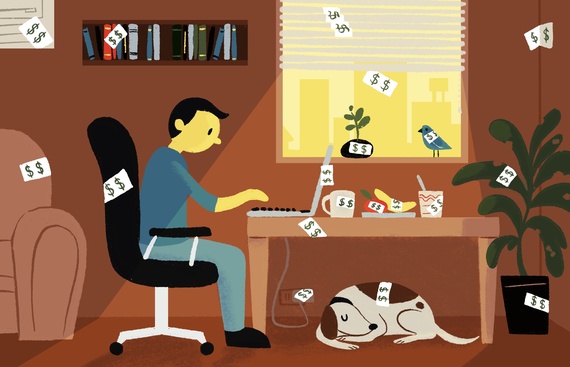Can the Work- from- Home Model help revive the economy?

The Coronavirus Pandemic has turned the world up-side-down, to say the least. Economic activities halted throughout the world with the subsequent lockdowns to curb the spread of the virus. Within a matter of a few weeks, the Pandemic dramatically altered the workspace. The entire world resorted to Work-from-Home ranging from big multinational corporates to small and medium-sized businesses in an attempt to keep the economy flowing, money circulating.
In the last couple of months, the spread of the Pandemic had somewhat flattened globally (baring India, USA, Iran and Brazil) but with the onset of winter in the Northern Hemisphere the number of cases has picked up again. This is especially concerning news for Europe, Canada and the USA indeed. This has led to many Corporations to opt for permanent Work-from-Home solutions wherever possible.
Work-from -Home brings with it a great deal of benefits – flexible working hours, better productivity and efficiency, to name a few. It is the financial benefits of Work-from-Home that goes under the radar. Working-from- Home frees up the employees to add up to their savings, as they no longer have to bear the burden of paying rent, commuting to work, having to build up an entire life in a distant city (for millions, if not all) which of course brings with a lot of added expenditures.
With the world economy reduced to a shadow of its former self, and a global recession well and truly underway, it is savings that would help generate demand at a later stage which would automatically give a boost to the economy.
According to a Gallup Poll research conducted solely in the U.S., two-thirds of all U.S. economic activity were done working from home full-time. The study further stated that only a quarter of those working from home would voluntarily return to their office if reopened; another quarter said they would instead work from home due to concerns about getting the virus, while half of the respondents said they wanted to continue working remotely because they prefer it.
While the Work-from-Home model is doing great for the developed countries, the situation is somewhat different for under-developed countries such as India, Brazil and Nigeria, for instance. Over here, the access to free-flowing internet that would not jeopardize the work is not available to one and all. Similarly, not many employees from the third world have the luxury of owning a desktop or a laptop in their homes, adding to further complications.
Having said that, Work-from-Home has also reduced the expenditures of many organizations as they have started to vacate unnecessary workspaces and also sell I.T. resources no longer required to maintain operations.
While it’s true that the Work-from-Home model has the potential to revive the economy and get it flowing at all times, there are also negatives to it. If the world opts for a complete Work-from-Home model, the Real Estate & Property, and the Transportation sectors would be the ultimate losers.
